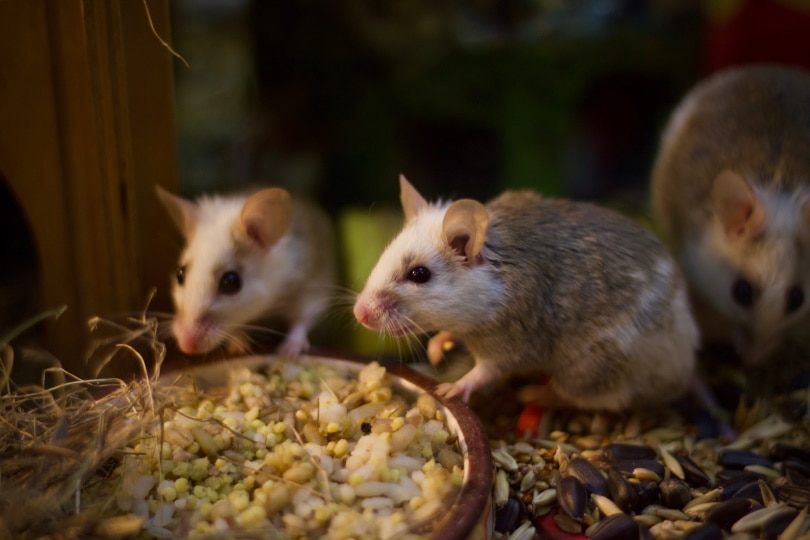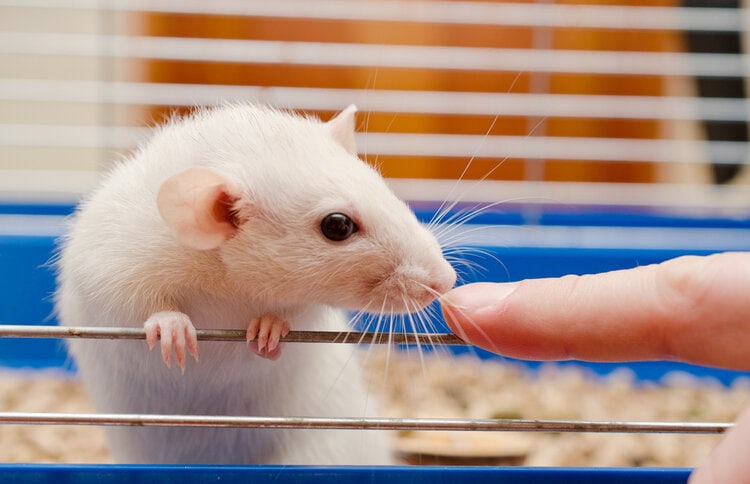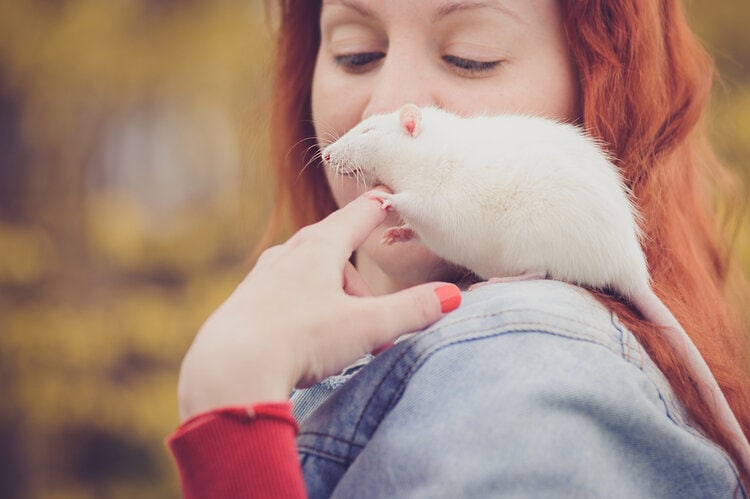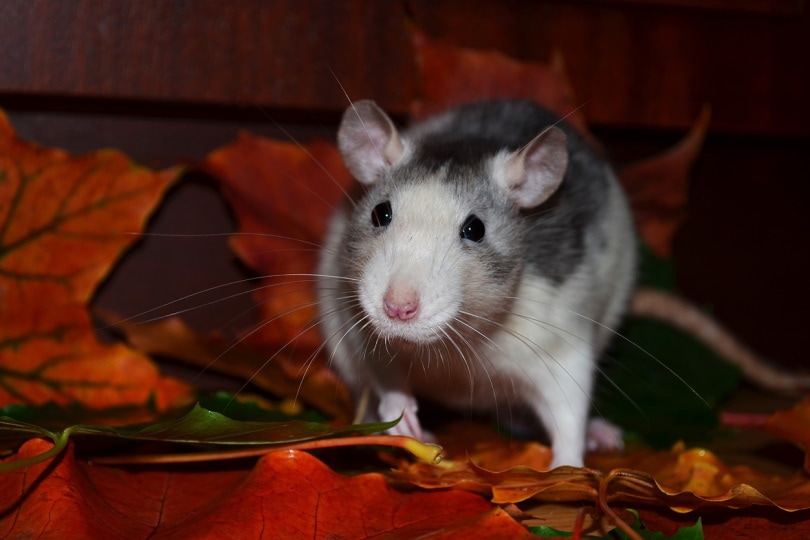
Rats are a majorly underappreciated pet due to their reputation as dirty sewer dwellers. Anyone who’s owned a rat will tell you that that couldn’t be further from the truth. Rats are intelligent animals that form close bonds with people and other animals, and they develop favorites when it comes to games and food.
One of the foods that most people have in their fridge is fresh carrots. If you’re a rat owner, you may have wondered if you can feed carrots to your rat, and the short answer is yes! Here’s what you need to know about feeding carrots to rats.
 Can Rats Eat Carrots?
Can Rats Eat Carrots?
Carrots are a safe veggie option for your rat when offered in moderation. Since they may have pesticides or bacteria on them, carrots should be cleaned thoroughly before being offered to your rat. If you’d clean it for yourself, you should clean it for your rat. This can help keep your rat safe while trying novel foods.

Are Carrots Good for My Rat?
Carrots are a nutrient-dense food option for rats. They are rich in beta carotene, which is a great source of vitamin A, supporting eye health and immunity. They’re also high in fiber, which can support a healthy digestive system; antioxidants, which support immunity and overall health; vitamin K, which is necessary for blood clotting and wound healing; biotin, which supports healthy metabolism; and potassium, which supports cardiac health.
For a single medium carrot, which is around 60 grams, you’re looking at 25 calories, 0.5 grams of protein, 0.1 grams of fat, 2 grams of fiber, and 3 grams of sugar. The low fat and calorie content, along with the nutrient density of this antioxidant-rich food, means carrots are a great, healthy food offering for your rat. The sugar content is higher than some other options, though, so keep that in mind when you begin offering carrots to your rat.
How Much Carrot Should I Feed My Rat?
It’s recommended that somewhere between 10–20% of your rat’s daily diet should consist of fruits and veggies, including carrots. Carrots are a treat, so they should be fed in moderation. It’s also important to feed carrots as part of a healthy, balanced diet, and they should not be the only fresh veggie being offered. In fact, carrots should only be offered as a treat 2–3 times per week.
The size of your rat will determine how much carrot you can offer to it. Aim to keep it at less than 20% of the day’s food offering, but it should ideally be considerably less. Washing and peeling carrots before feeding to your rat is a good practice, but the carrot can be offered raw. It’s best to chop it into pieces small enough for your rat to hold, although shredded carrots can also be offered. You can offer a whole baby carrot or slice of carrot to your rat if they are interested in different textures and sizes of food. If you do this, make sure you stay with your rat to ensure it does not over eat. A large chunk of carrot is likely too much for your rat, regardless of its size.

What Else Should I Know About Feeding Carrots to My Rat?
Feeding too many carrots to your rat can lead to diarrhea because of the sugar content of carrots. Start off by offering small pieces of carrots to see how your rat tolerates it. If it begins having diarrhea, then either you are overfeeding the carrots or your rat’s stomach is sensitive to them. Diarrhea can quickly lead to dehydration in animals as small as rats, so cut back or eliminate carrots from the diet if this becomes an issue.
Fresh carrots are the best option for your rat. You can offer canned or thawed frozen carrots, but they should have no added sodium. Canned foods especially tend to be high in sodium, which can lead to dehydration in your rat, as well as high blood pressure and other health issues.
Remove uneaten carrot pieces from your rat’s enclosure after a couple of hours. This will limit the chances of your rat becoming ill from bacteria. It also limits the opportunity for insects to get into the enclosure. Fresh foods that are left in your rat’s cage can soil the bedding and lead to unpleasant smells and a sickly rat.
 In Conclusion
In Conclusion
Carrots can be a great treat option for your rat. Rats love experimenting with novel foods, and carrots can be a tasty treat in moderation. Overfeeding can upset your rat’s stomach, leading to diarrhea, so make sure you’re feeding carrots only in moderation. Offering new and interesting foods to your rat can help build a trusting bond between you, and it can bring happiness to your rat.

 Can Rats Eat Carrots?
Can Rats Eat Carrots?





